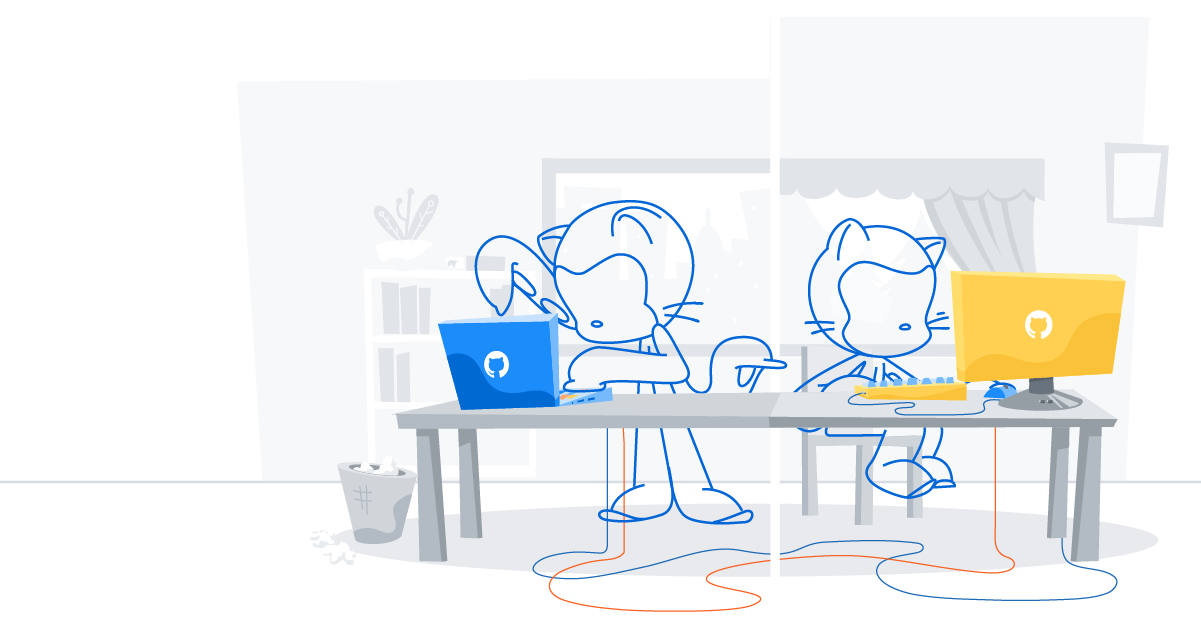Reflecting on joining GitHub and what’s next for GitHub Insights
With GitHub’s focus on developers, community, and customers, we can’t imagine a better place for our team to be.

Last week at GitHub Satellite, we previewed GitHub Insights, a new product to provide development metrics that matter. GitHub Insights features the work of the team from Gitalytics, a development analytics startup, who joined us a few months ago. We’re excited to have the Gitalytics team onboard, since we have a shared vision to advocate for the developer, and to drive improvement through transparency, thoughtful discussion, and meaningful collaboration. Here, they share their experiences joining GitHub, and the lessons they’ll take into building GitHub Insights.
Joining GitHub and meeting new colleagues
When we joined GitHub several months ago, one thing that struck us immediately was the team’s depth of experience and talent. If you’re a designer, you’ve likely seen the Primer design system. Guess what? Now you work with the team who invented it. It’s the same for Bootstrap, or of course, GitHub itself. But what constantly surprises us is how strong our new coworkers are in other areas—they’re exceptional communicators, with a wealth of technical experience, who all ask hard questions. As one of our teammates put it, “every interaction is a 10x learning experience.”
Takeaway
You, and the teammates who make up your organization, have a unique set of skills. Part of your job is to learn from and teach your colleagues—not to hoard or concentrate knowledge among a select few members of the team. If you’re a leader or manager, your job is to encourage sharing knowledge.
Working remotely, communicating transparently
When we joined GitHub, we also joined a distributed team—the company is nearly 70 percent remote workers. This was quite an adjustment from being a small team (mostly) clustered in one office. As a result of working from home, the way we’ve communicated has changed. While we still have stand-ups and talk in real-time, we also write more and encourage greater asynchronous communication. Altogether, the change to working on a distributed team forces us to work more transparently to get everyone oriented towards the same goals. We still miss working together in one room, though.
Takeaway
As any developer (or person) will confirm, project success depends on far more than just code or individual output. It requires setting goals that the entire team understands and supports. The medium and cadence you use to communicate those goals and to drive consensus matters, particularly with a remote, distributed team.
Bigger scale, longer horizons
Working at a startup like Gitalytics often meant juggling a lot of different roles—we each had user research, sales, and marketing duties in addition to our engineering jobs. At GitHub, we now have the room to think more deeply about the product we want to build, focus on serving hyperscale engineering teams as well as smaller ones, and think on longer time horizons for our product, research, and customers. We haven’t lost sight of what we intended to build, but we now have more runway and resources with which to do it. We sometimes trade speed for scale and resources, but overall, we’re able to approach the problems we’re trying to solve more thoughtfully and carefully.
Takeaway
Like any transformation our customers are going through, doing ambitious things takes focus and time, sometimes with difficult trade-offs. Any tooling, culture, or investment you make in your team should support their ability to make the best decisions possible in support of their goals.
Responsibility to developers
As developers, we’re well aware of GitHub’s reach and influence, and the impact that a product like Insights can have on how software is built for years to come. We’re glad to be at a company that advocates for developers and their teams, and we view being part of GitHub as an opportunity to build a product that can define, scale, and encourage best practices.
Takeaway
Insights is an early and evolving product, but it’s one that we’re determined to get right for developers, teams, and businesses. We’ll admit that we don’t have all of the answers on using metrics and analytics for software development today, but we’re looking forward to working with you to find them.
What’s next for GitHub Insights
Using metrics and analytics to characterize software development and productivity is important, but a poorly defined and under-researched challenge. We’re continuing to work with our community and customers to evolve Insights, and to ensure that it reflects our values and overall vision. Like GitHub itself, Insights will be a social, extensible platform, built to promote collaboration and carefully researched best practices. We can’t imagine a better place than GitHub for our team and mission to have landed, and we’re excited to share more of our work with you in the upcoming months.
Tags:
Written by
Related posts

From pair to peer programmer: Our vision for agentic workflows in GitHub Copilot
AI agents in GitHub Copilot don’t just assist developers but actively solve problems through multi-step reasoning and execution. Here’s what that means.

GitHub Availability Report: May 2025
In May, we experienced three incidents that resulted in degraded performance across GitHub services.

GitHub Universe 2025: Here’s what’s in store at this year’s developer wonderland
Sharpen your skills, test out new tools, and connect with people who build like you.